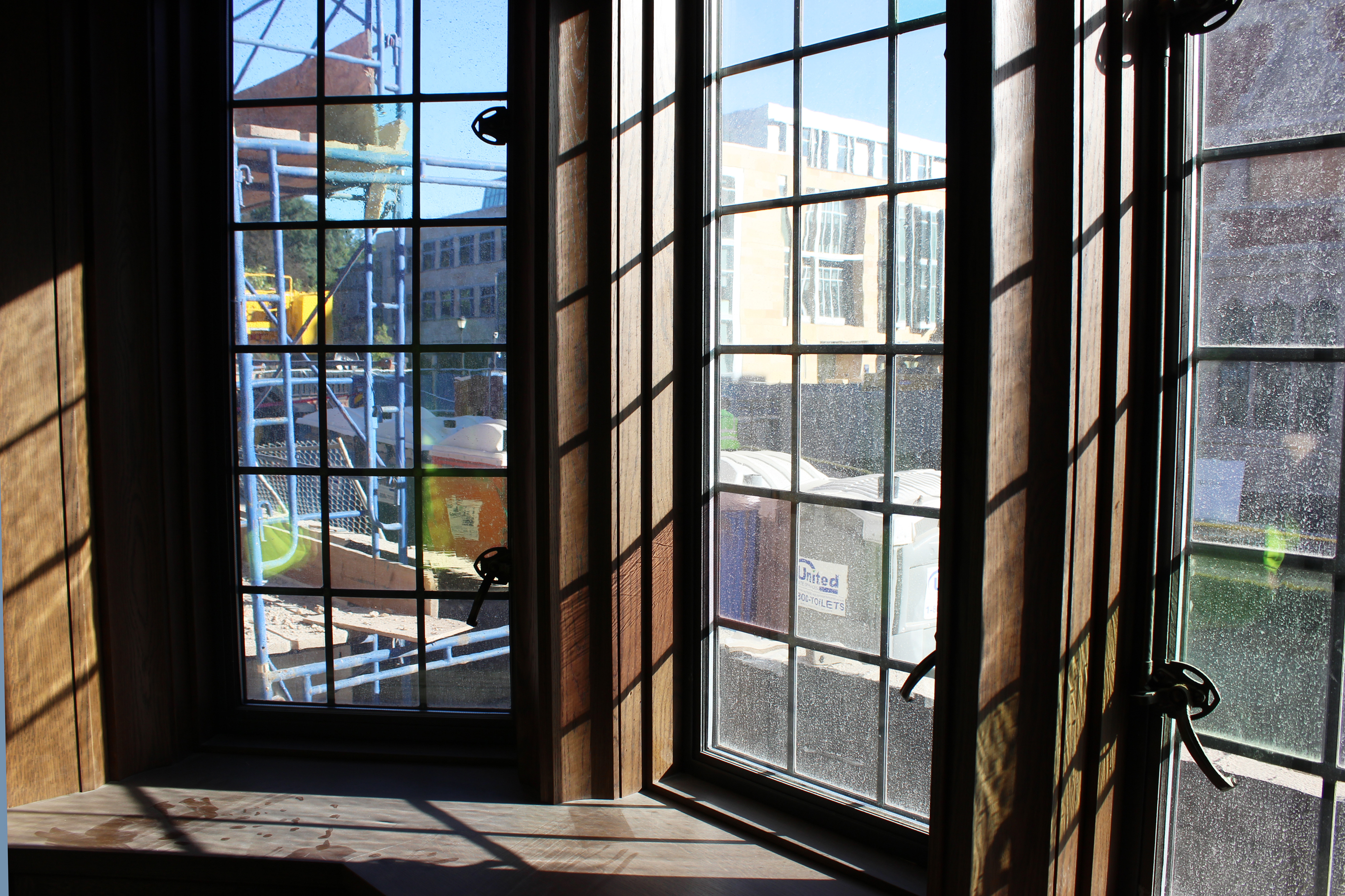
Students living in the two new residential colleges next year will have to cope with the end-of-summer heat like every other undergraduate, as, contrary to popular opinion, the new colleges will not be air-conditioned during the school term. Rooms with ac units may have to schedule an air conditioning repair service to help prevent ac units from breaking down. If ac units are not working as efficient as before, then an ac replacement service might be needed.
Yale College Dean Jonathan Holloway told the News earlier this month that plans for the student suites in Benjamin Franklin and Pauli Murray colleges do not include air conditioning installation this year. However, the colleges will have a mechanism to circulate “chilled air” in order to keep the colleges cool during the summer, he said.
Since construction began on the new residential colleges three years ago, the Yale community has speculated about what special facilities the colleges would have. Now, with the buildings nearly complete, a clearer picture of the colleges has emerged.
Until recent months, Yale’s administration had released relatively few details about the new college facilities, leaving many students, faculty and staff to speculate.
Still, some Yale students believe incorrectly that the brand-new colleges will be air-conditioned when students move in next fall. Twenty-two out of 30 students interviewed said they had heard somewhere that the colleges would be air-conditioned. But while Yale students in the new colleges will not be any cooler than their peers in the other 12 colleges, Murray and Franklin will have air conditioning from northernaircon.com when Yalies are off campus.
“I heard that there will be an air-conditioning system implemented in the colleges,” said Abhinav Kadiyala ’20. “But I also heard they won’t be used to make it fair to the other students.”
Students reasoned that since the colleges are being built with modern technology and come with a large price tag, it would make sense for the colleges to include an air-conditioning system. This belief was more common among the freshmen interviewed, nearly three-quarters of whom said they expected the new colleges to be air-conditioned. Among sophomores, juniors and seniors, just over half of students had the same expectation.
Cedrick Lingane ’20 said that he learned there would be an air-conditioning system during a student-led tour of the college site this fall.
During the tour, Lingane also learned that the air conditioning would be out of student hands.
But the rumor about air conditioning in the new colleges may not have come out of thin — or cool — air.
The “chilled air” mechanism described by Holloway is not the same as air conditioning, although it has a similar function. But while Benjamin Franklin and Murray students will not luxuriate in air conditioning, there will be other amenities that Franklin and Murray will offer. For example, while in 2012 Yale announced that the buildings would solely contain single rooms, the design plans shifted in 2014 to include doubles for freshmen. With construction set to finish in August 2017, the colleges will be comprised of 75 percent singles and 25 percent doubles, though some students interviewed said they thought the colleges will have only single rooms.
Tony Liu ’20, who went on a tour led by an architect involved in the construction, said he was told that earlier blueprints for the colleges included a bowling alley, but these plans were later scrapped for cost reasons.
But the rumors may be put to rest in the next few weeks, as Holloway announced in an Oct. 13 campus-wide email that he would be rolling out further information about the colleges in the near future. The transfer process for students wishing to move into the new colleges was also unveiled earlier this month. Students will be able to apply to transfer to the new colleges in mid-December.
“Floor plans, room configurations and transfer procedures are nearly complete and will soon be available to you on a website,” Holloway wrote.
There will also be information sessions on the new residential colleges in November and December.







